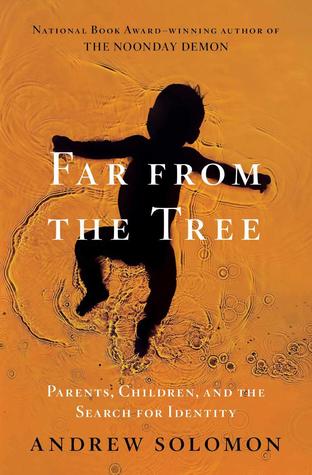More on this book
Community
Kindle Notes & Highlights
Read between
December 10, 2019 - January 21, 2020
terrible to perform unnecessary surgery on a healthy body, but it is also terrible to deny succor to a mind that knows itself.
She believes that a just society must have room for boys who like dolls, for heterosexuals who cross-dress at home, for women who are tough at the office and turn kittenish with intimates, for male kids with long hair who want to learn ballet, and for little girls who are interested only in baseball and climbing trees.
Brill encourages parents and patients to explore the many places in the gender middle before they commit to a leap from one side to the other.
“All we really had to figure out was how to get to the point where we were no longer self-conscious about what who he is says about who we are.”
Peter Singer’s eugenic idea that not all human beings are persons;
it’s no mean feat to find the difference between helping your children formulate their dreams and trapping them in your own.
By what logic does making a better world have to do with hewing to the norm?
“The question is whether we will maintain a social system that makes allowance for unpredictability, variance, competing moral imperatives, difficult decisions, private decisions, and even perverse decisions.”
“Communication and the pursuit of intimacy are central to being human. If you genuinely believe that your children will have at least as rich an emotional life if they cannot hear, and that you will be better able to communicate with them, why not make this choice?”
We live in an increasingly diverse society, and the lessons in tolerance that come with that diversity have extended even to populations too disenfranchised to make their own claims—a change larger in scope than any that the suffragettes or the civil rights activists envisioned. Disabled people are on television; transgender people hold public office; members of the helping professions are working with criminals, prodigies, and people conceived in rape. Jobs programs exist for people with schizophrenia or autism.
Parents need not merely love their children despite their defects but may find the surprising rightness in those imperfections.
A wise psychiatrist once said to me, “People want to get better, but they don’t want to change.” But I would propose that only by allowing people born with horizontal identities not to change does one allow them to get better. Any of us can be a better version of himself, but none of us can be someone else.
Similarly, building a compassionate society benefits not only those who are newly tolerated, but also those who are newly tolerating.
Ruth Schekter said, “Children like ours are not preordained as a gift. They’re a gift because that’s what we have chosen.”
I do not accept competitive models of love, only additive ones.
As a parent, for all that I relish glee, I know that attachment happens when things turn dark.
Parenting is an exercise in safety, and the perpetual menace of danger is what exalts parental love above affection; without the night terrors, the spiking fevers, the litany of bruises and woes, it would be a second-rate entertainment. It took me some time to understand that attention to one’s children’s needs is the essence of gratification. From that perspective, it made sense that the difficult loves of these pages are so deep. I want more than anything for my children to be happy, and I love them because they are sad, and the erratic project of kneading that sadness into joy is the engine
...more
am unabashed by this book’s occasional whiff of rapture and reject the idea that beauty is the enemy of truth, or that pain can’t be the hare to joy’s tortoise.
it is increasingly our character to seek transformation.
This book seeks the nobility buried in Howells’s disparagement. It is predicated on an even more optimistic notion, which is that the happy endings of tragedies have a dignity beyond the happy endings of comedies, that they not only transcend the mawkishness to which Howells alludes, but also produce a contentment more cherished than one untempered by suffering. Sometimes, people end up thankful for what they mourned. You cannot achieve this state by seeking tragedy, but you can keep yourself open more to sorrow’s richness than to unmediated despair. Tragedies with happy endings may be
...more


